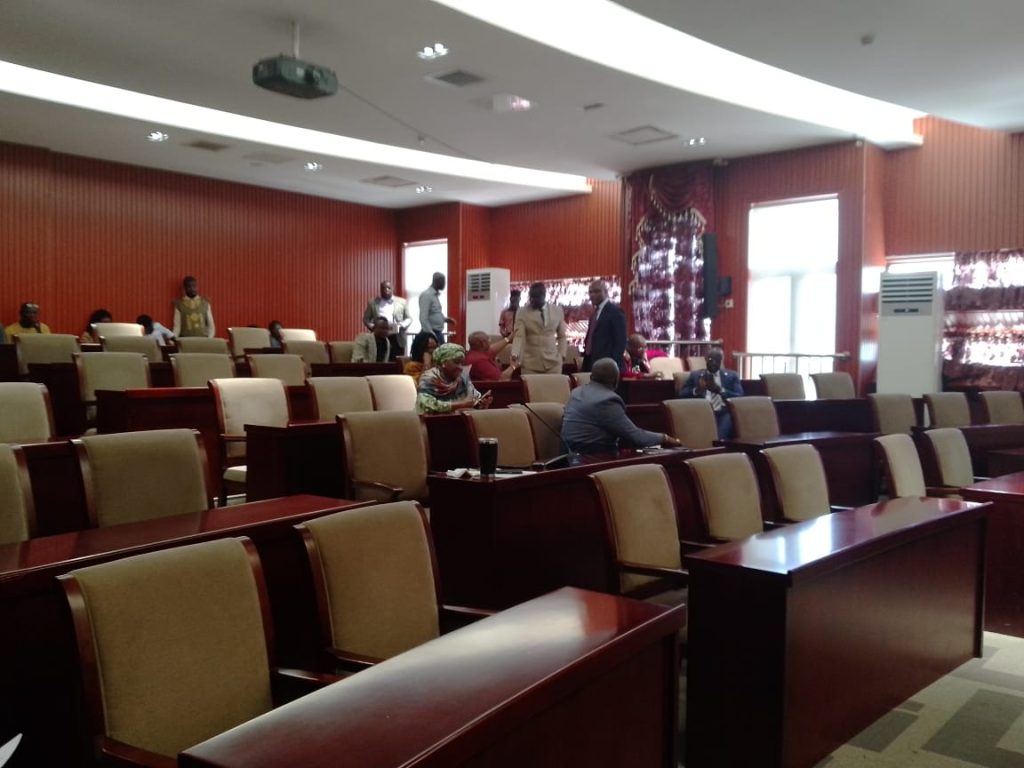On October 15, 2024, the House of Representatives chamber in Liberia was notably empty as lawmakers failed to convene for the third quarter of the first session of the 55th Legislature. This absence followed the distribution of $45,000 to each member for vehicles at the end of the previous session, raising public disappointment and concern regarding the lawmakers’ commitment to their duties. The session was aborted due to a lack of quorum, as only 20 out of 73 representatives were present, failing to meet the required two-thirds majority. With 61 representatives absent, Deputy Speaker Thomas Fallah had no option but to adjourn the session, citing their travels to their respective districts.
In accordance with legislative rules, at least 37 members must be present to establish a quorum. The clerk’s roll call confirmed the low attendance, prompting the Sergeant-at-Arms to dispatch officers to lawmakers’ offices. However, these offices also appeared empty, reinforcing the lack of engagement from the representatives. Deputy Speaker Fallah reiterated the importance of lawmakers prioritizing the business of the Liberian people upon their return, stressing the need for unity and commitment to legislative responsibilities.
The resumption of the House’s activities is outlined in the amended legislative calendar, which acts as a framework for scheduling sessions. Before this break, the House concluded its second quarter on July 18, 2024, reconvening briefly before extending its special session to address pressing national matters, including the 2024 budget. The most recent delay in resuming regular duties further exemplifies the disconnect between the legislative body’s responsibilities and its public accountability, as they are perceived to prioritize their own interests following substantial financial distributions.
The House’s activities during the third quarter are expected to continue until the end of December, with the intention of engaging with crucial legislative matters ahead of the new session scheduled for January of the following year. The disengagement observed during the 15th’s failed session raises questions about the efficacy of legislative oversight amid ongoing national challenges. As public trust in the legislature’s ability to represent the interests of citizens dwindles, the importance of consistent engagement and transparency in governance becomes increasingly evident.
This situation underscores a critical need for legislators to demonstrate accountability and responsiveness to the constituents they serve. With significant public discourse surrounding the proper utilization of funds and the accountability of elected officials, the absence of lawmakers serves not only as a logistical issue but as a broader reflection on the state of political representation in Liberia. The return to work is more than a procedural obligation; it involves a commitment to upholding the principles of democracy and governance in the eyes of the electorate.
As legislative sessions progress, continued public scrutiny will be directed toward lawmakers, emphasizing the urgency for them to reconvene and effectively address key national issues. The performance of the 55th Legislature in the coming months will be closely monitored by the public and political analysts, for it will determine their standing in the 2024 elections and beyond. Ultimately, the successful navigation of legislative responsibilities will hinge on acknowledging the expectations of the Liberian people and reaffirming their role as dedicated representatives of the public’s interests.


